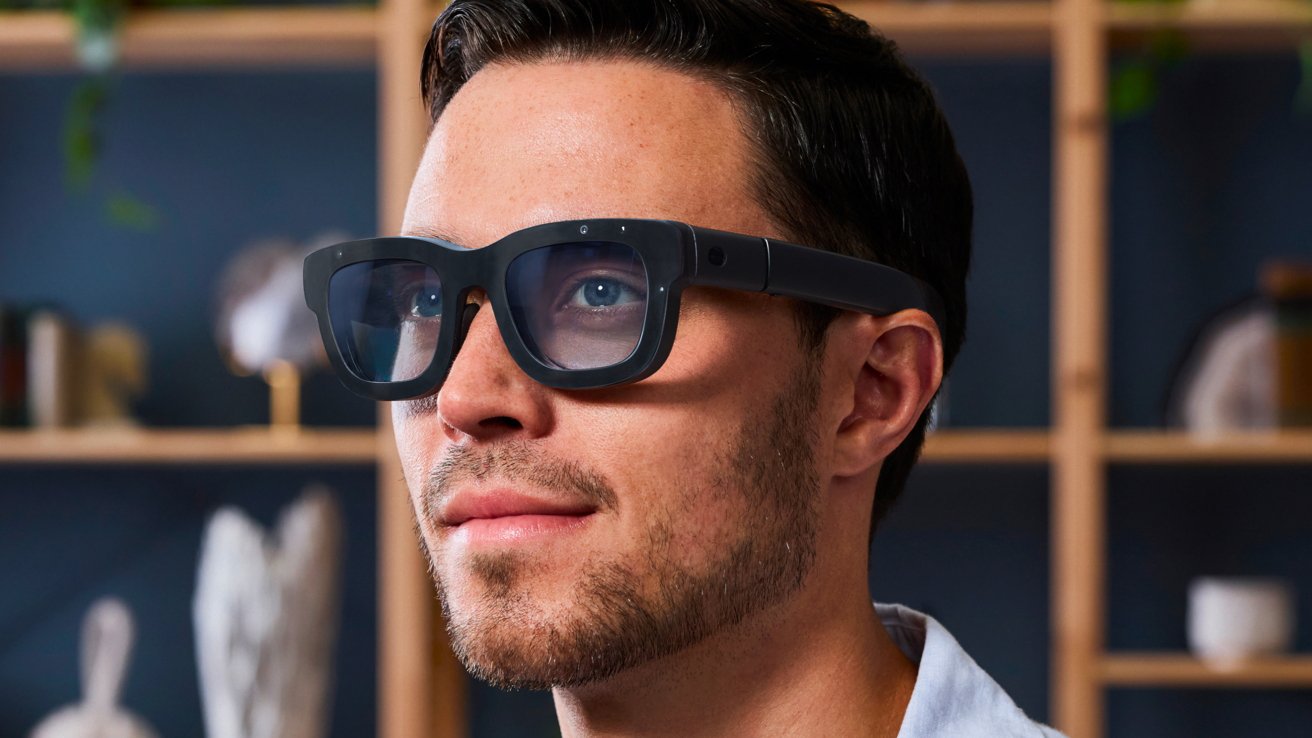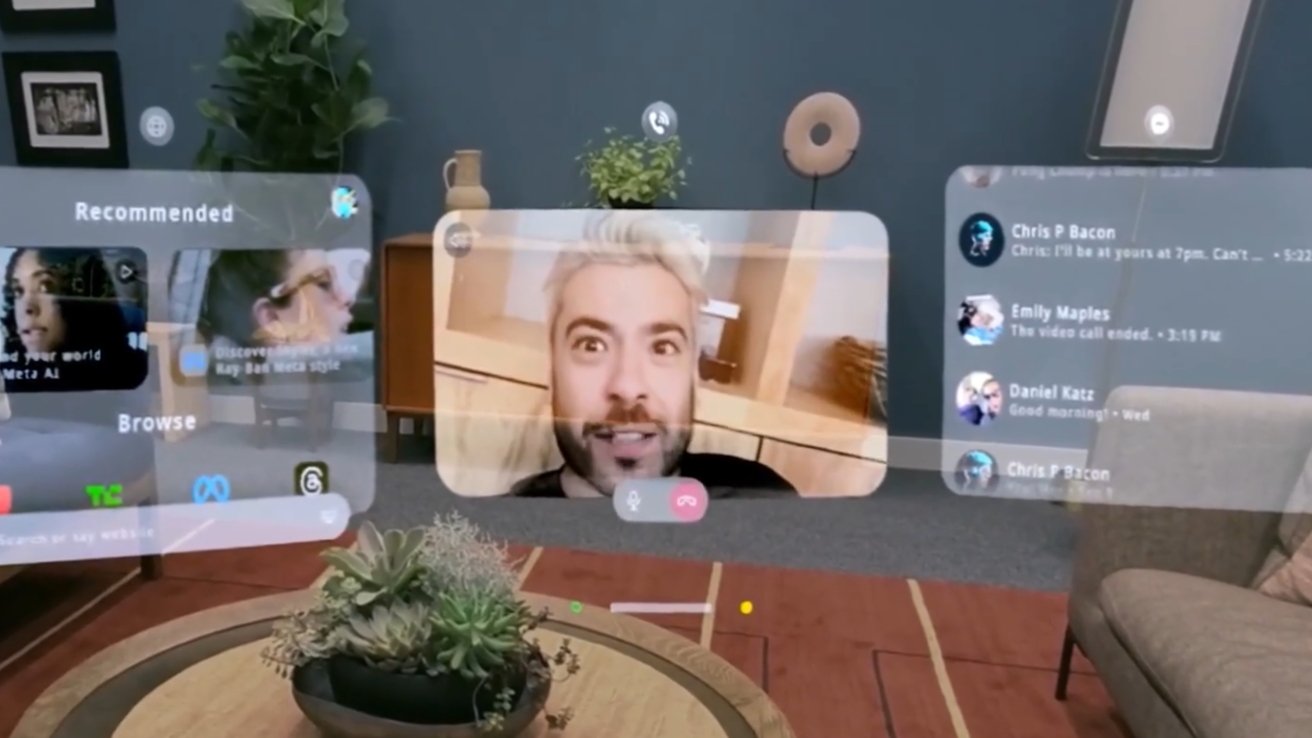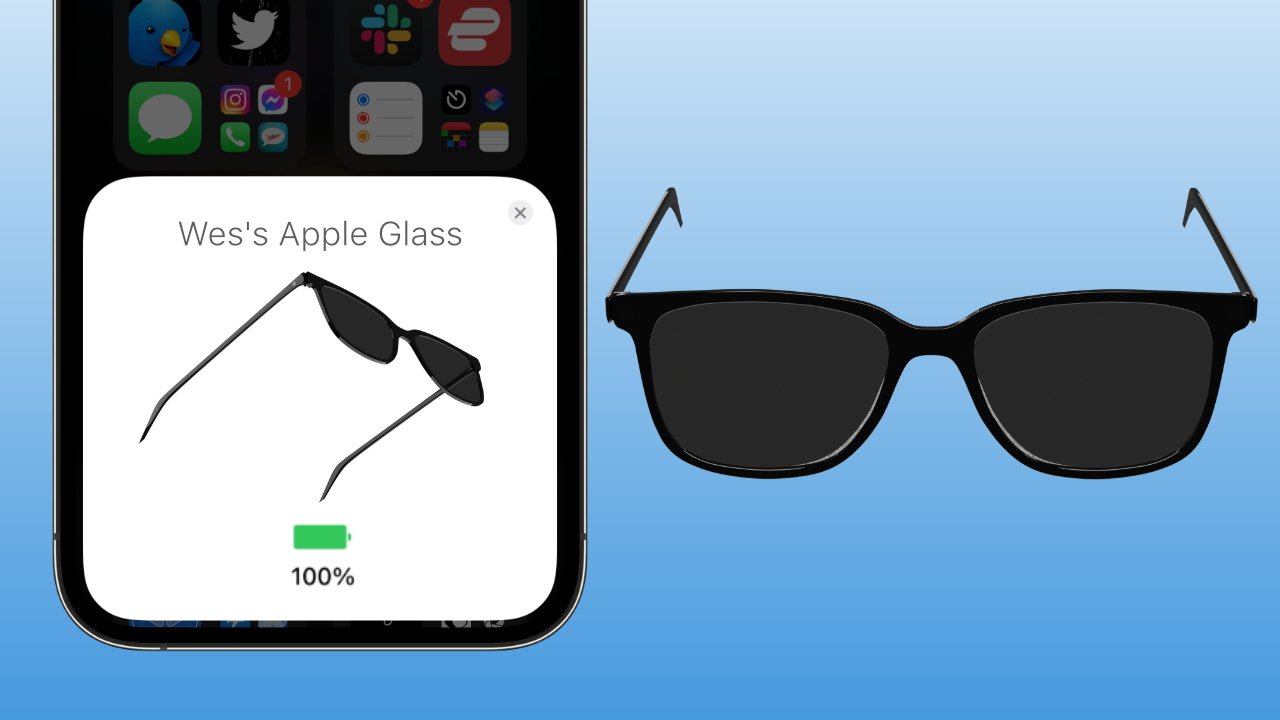news@appleinsider.com (Wesley Hilliard)
2024-09-25 16:11:34
appleinsider.com
While Meta might be playing fast and loose describing its Orion smart glasses as having the look and feel of a regular pair of glasses, it is a clear look at the future possibilities of Apple Vision.
Words used to mean something, like “Artificial Intelligence,” “hologram,” and “regular pair of glasses,” but we’re throwing out all pretense in light of Meta’s latest announcement. These definitely “regular” looking spectacles promise to bring augmented reality computing to your face — well, not your face exactly.
Orion isn’t a public product. It is being revealed to show that Meta has made progress in the last five years towards, well, something.
No one is going to argue that these aren’t likely the most advanced AR glasses revealed to date. Other products in the category struggle with interactions, require external computers, or are simple screens showing content from a different computer.
In its current state, Orion requires these, according to Meta, “lightweight, stylish glasses,” with “holographic displays” to provide compelling AR experiences. The miniaturization and execution are no doubt impressive, but we could do with a little more honest language from Meta marketing.
In any case, Meta claims Orion has the largest field of view in the smallest AR glasses form factor to date. They accomplished this by relying on external sensors and computing.
Input is provided by an electromyography wearable wristband. Voice and eye tracking are also used as inputs. A small pocket component that’s about the size of an eyeglass case contains the computing needs for the device.
So, you’re using three devices to achieve one AR face wearable.
The definitely sleek, stylish, not-a-prototype Orion
But what makes Orion unique is that it is unmistakably a pair of glasses in both look and feel – complete with transparent lenses. Unlike MR headsets or other AR glasses today, you can still see other people’s eyes and expressions, so you can be present and share the experience with the people around you.
Orion is described as “early days” with the glasses running Meta AI, which understands the world around you. However, Meta says Orion isn’t a research prototype — it’s a “polished product prototype” that is “representative of something that could ship to consumers.”
The company says it didn’t want to rush a product to shelves. Orion will be used by Meta employees and select external audiences to help develop the product over the next few years.
One day you too will be able to have video calls from a face computer that isn’t an Apple Vision Pro
The pitch seems to suggest Meta wants Apple Vision Pro-style computing, but without the ski goggles. It is a lofty goal that many companies are chasing, but now Meta is doing so publicly.
It’s not clear if Google or another competitor will try to unveil their prototypes in the coming months to satisfy shareholders. There’s definitely not a history of pre-announced product strategies like Google Glass, HoloLens, or Magic Leap.
It’s not like each of those products made huge promises, failed to materialize a useful product, pivoted to enterprise, then disappeared into the background without notice.
Apple’s spatial computing future
Apple Vision Pro launched in February 2024 with an enormous price tag and limited media support. Neither of those has changed in the months since, but that likely hasn’t slowed Apple’s development pipeline.
The ultimate goal of Apple Vision Pro and visionOS is to introduce the technologies in a lightweight pair of glasses we’ve dubbed Apple Glass. Meta’s Orion is eerily similar to a paradigm that is expected for an initial Apple Glass launch.
Replace the wireless compute unit with an iPhone, the wristband with an Apple Watch, and the glasses with something a little more appealing, and you’ve got Apple’s glasses strategy. At least, that seems to be the direction rumors have been pointing.
So, like with so many markets before it, Apple is surely appreciative of Meta prototyping a product in public. Reactions to the product and how it evolves over the next few years will help Apple’s internal development with none of the risk.
As always, we’ll have to wait and see how it all turns out. In the end, the consumer will win with an excellent AR face computer, let’s just not think about the cost to our privacy and society to have Facebook leading the way in such an important paradigm shift.
Regardless of the jabs from Meta over the prototype Orion, Apple did ship its spatial computing platform to the public. It will be up to Meta to avoid the failures of other pre-announced prototype AR products and beat Apple to the punch.
Support Techcratic
If you find value in Techcratic’s insights and articles, consider supporting us with Bitcoin. Your support helps me, as a solo operator, continue delivering high-quality content while managing all the technical aspects, from server maintenance to blog writing, future updates, and improvements. Support Innovation! Thank you.
Bitcoin Address:
bc1qlszw7elx2qahjwvaryh0tkgg8y68enw30gpvge
Please verify this address before sending funds.
Bitcoin QR Code
Simply scan the QR code below to support Techcratic.

Please read the Privacy and Security Disclaimer on how Techcratic handles your support.
Disclaimer: As an Amazon Associate, Techcratic may earn from qualifying purchases.








































































